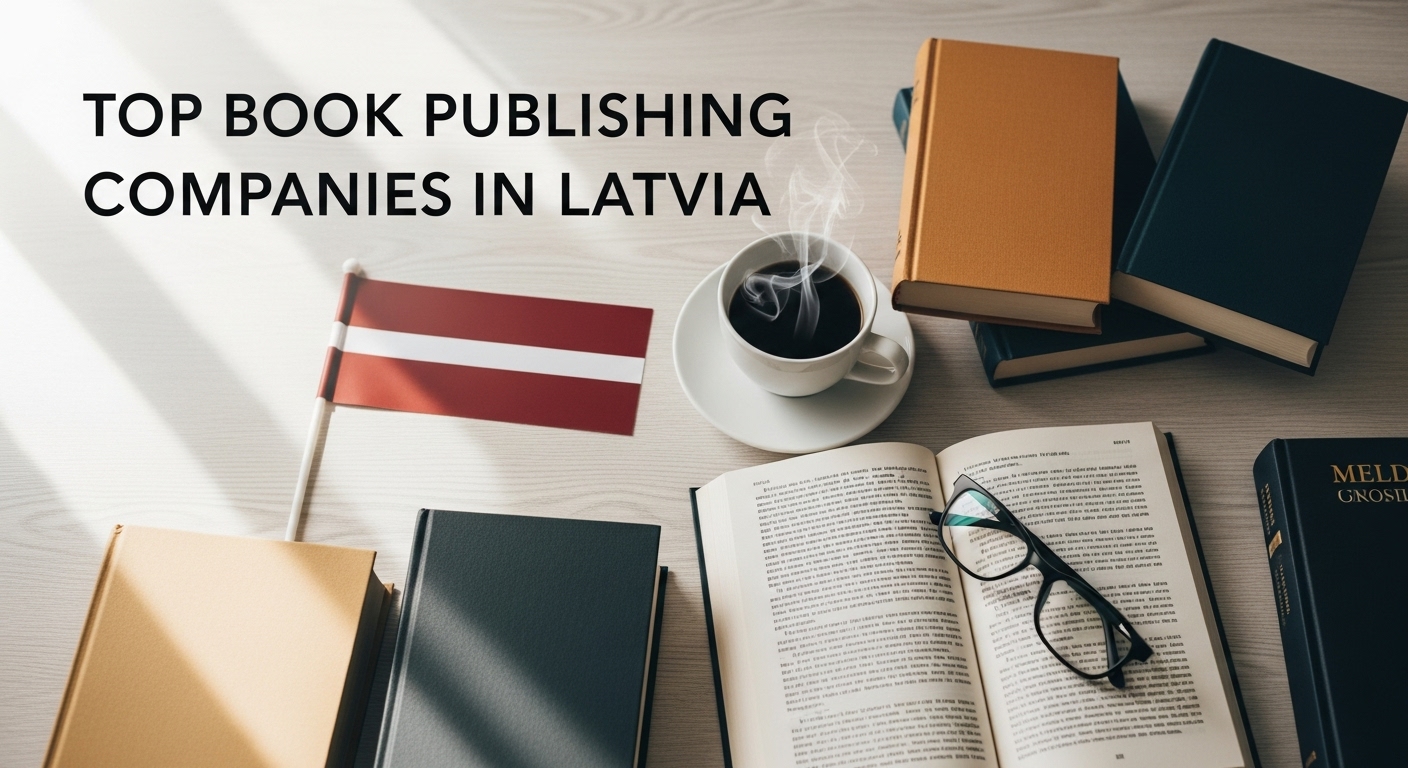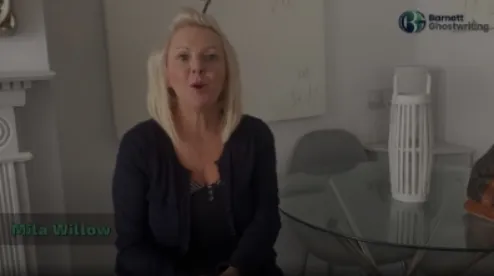
Latvia has a rich literary tradition and a lively publishing scene that blends long-established houses with creative new independents. From large companies that dominate the schoolbook and retail market to small presses that focus on poetry, art, or bilingual editions, the country’s publishers reflect both cultural heritage and modern trends. In 2025, authors and readers can find a wide range of options — whether they’re looking for educational materials, experimental fiction, or beautifully illustrated children’s books.
1. Barnett Ghostwriting
Barnett Ghostwriting operates here in a publisher-style role. It manages projects from manuscript stage to book production and even marketing, offering authors both editorial craftsmanship and structured publishing support.
- Focus: memoirs, genre fiction, and full-service book projects
- Role: ghostwriting + publishing-style partner, bridging creative development with distribution
2. Zvaigzne ABC
Latvia’s largest publishing house, Zvaigzne ABC is a market leader. It manages bestsellers, children’s books, translations, and even educational titles, with strong retail distribution.
- Publishes Latvian and translated fiction
- Extensive textbook and children’s catalogue
- Strong sales channels nationwide
3. Neputns
Neputns is synonymous with art publishing in Latvia. Its books are visually striking and often bilingual, making them export-friendly.
- Specializes in: art books, cultural studies, poetry
- Known for: museum collaborations and fine design
4. Apgāds Mansards
A respected independent house, Mansards champions Latvian literary fiction and brings strong international voices to local readers.
- Literary fiction, contemporary works
- Bilingual/translated projects
- Curation-focused publishing ethos
5. Jumava
Jumava is a general-interest publisher with a broad catalogue ranging from encyclopedias to lifestyle and children’s books.
- Non-fiction, guides, and reference works
- Accessible mainstream titles
- Longstanding reputation
6. Jānis Roze
This publishing house doubles as one of Latvia’s iconic bookstores. Its imprint publishes fiction, cultural titles, and translations.
- Fiction and poetry
- Educational and cultural books
- Rich historical tradition
7. Valters un Rapa
One of the oldest Latvian book businesses, combining publishing and retail.
- School/educational books
- Latvian authors and cultural works
- Strong legacy in Riga
8. Drukātava
Operating both as a publisher and a printer, Drukātava supports trade books as well as author-driven projects.
- Print services + publishing
- Supports short runs and commercial books
9. Rīgas Viļņi
Rīgas Viļņi produces trade fiction and nonfiction titles, often connected to its wider media network.
- General-interest titles
- Magazine and media-linked publications
10. Zinātne
- Academic and scholarly publisher
- Produces monographs, textbooks, and research-driven works
- Trusted by universities and libraries
11. Prometejs
- Humanities and social sciences focus
- Releases cultural criticism and specialized nonfiction
- Long tradition in Latvia’s academic landscape
12. Dienas Grāmata
A publishing imprint linked to media channels, known for topical nonfiction.
- Current affairs and essays
- Journalistic books with timely relevance
13. OmniScriptum (Latvia Branch)
- Academic reprint and international scholarly publisher
- Publishes theses and specialist materials
- Active in Latvian and Baltic market
14. TAUST
Independent small press, active in niche genres.
- Poetry, essays, and short-run editions
- Known for experimental projects
15. Franks House
- Medium-sized publishing operation
- Works with local authors and specialized titles
- Contributes to Latvia’s diverse publishing mix
16. Liels un Mazs
Liels un Mazs is Latvia’s leading children’s publisher, celebrated internationally for its illustrations and innovative stories.
- Picture books and early readers
- Award-winning design aesthetics
17. Regional Imprints (e.g., Rasa)
- Community-focused publishing
- Regional histories, memoirs, and anthologies
- Strength in preserving cultural identity
18. University & Academic Presses
- Publish scholarly monographs and conference proceedings
- Support higher education in Latvia
- Focus: academic credibility
19. Boutique Art & Photography Houses
- Produce museum catalogues and fine art books
- High production values
- Collectors’ editions
20. Bilingual & Translation-Friendly Publishers
- Create Latvian-English dual editions
- Cater to export and rights fairs
- Focused on global readership
21. Specialist Children’s Imprints
- Educational activity books
- Illustrated learning tools
- Aimed at parents and schools
22. Poetry Micro-presses
- Chapbooks and experimental verse
- Foster Latvian poets
- Important for niche literary culture
23. Comics & Graphic Novel Startups
- Emerging segment in Latvia
- Local comics creators and anthologies
- Growing festival presence
24. Trade Nonfiction Houses
- History, biographies, and popular science
- Mainstream retail appeal
25. Professional & Business Publishers
- Manuals and professional references
- Legal, economic, and corporate texts
26. Cookbook & Lifestyle Publishers
- Food, wellness, and craft titles
- High design and illustration standards
27. Self-Publishing & POD Services
- Offer packages for independent authors
- Print-on-demand solutions
- Hybrid publishing models
28. Textbook Specialists
- Curriculum-based school publishing
- Teacher resources
- Partner with education boards
29. Regional Cultural Presses
- Linked to festivals or municipal projects
- Regional anthologies and histories
30. Reprint Houses
- Focus on Latvian classics and out-of-print heritage
- Archival preservation
31. Language-Learning Publishers
- Latvian phrasebooks and learning guides
- Resources for diaspora and learners
32. Cooperative & Collective Presses
- Author-run collectives
- Experimental and collaborative books
33. Independent Translation-Focused Publishers
- Contemporary global literature in Latvian
- Selective curation of prizewinning authors
34. Festival-Based Imprints
- Publish works tied to literary festivals
- Limited editions and curated collections
35. Educational Series Publishers
- Activity-based children’s educational books
- Aligned with learning curricula
36. Printers with Imprints
- Printers expanding into publishing
- Small-scale, flexible runs
37. NGO & Nonprofit Publishing Projects
- Oral histories, cultural research, reports
- Supported by grants and NGOs
38. Biography & Memoir Specialists
- Focus on life stories and personal histories
- Provide editorial guidance for authors
39. Audiobook Producers
- Convert print books to audio
- Expand Latvian literature accessibility
40. Hybrid & Co-Publishing Partnerships
- Collaborations with European partners
- Rights and translation opportunities
41. Science & Environmental Presses
- Nature guides, ecology, and research
- Accessible science titles
42. Children’s Picture Book Micro-presses
- Independent illustrators’ houses
- Short-run artisanal editions
43. Applied Arts & Design Publishers
- Architecture, photography, and design books
- Support Latvia’s creative industries
44. New Indie Startups
The latest entrants into Latvia’s publishing world bring bilingual editions, digital-first projects, and flexible publishing strategies. They often operate online, engaging directly with young readers.
- Emerging, experimental voices
- Digital-first focus
- Fresh approaches to publishing
Choosing the Right Latvian Publisher
Finding the right publisher in Latvia depends on your book and goals. A few basics to keep in mind:
- Genre & audience: Literary fiction and poetry fit better with small editorial presses, while commercial non-fiction suits big trade houses.
- Language strategy: If export matters, look for publishers open to bilingual or translation-friendly editions.
- Distribution vs. attention: Large houses like Zvaigzne ABC or Valters un Rapa have wide reach; smaller presses offer more personal editing and curation.
Final Thoughts
Latvia’s publishing sector in 2025 is a blend of large established names like Zvaigzne ABC and Jumava, literary independents like Mansards and Neputns, and creative newcomers pushing bilingual and digital formats. Authors looking for opportunities here should match their book’s genre to the right house: mainstream works for the bigger publishers, experimental projects for indie presses, and bilingual or POD-friendly titles for export-minded imprints.





